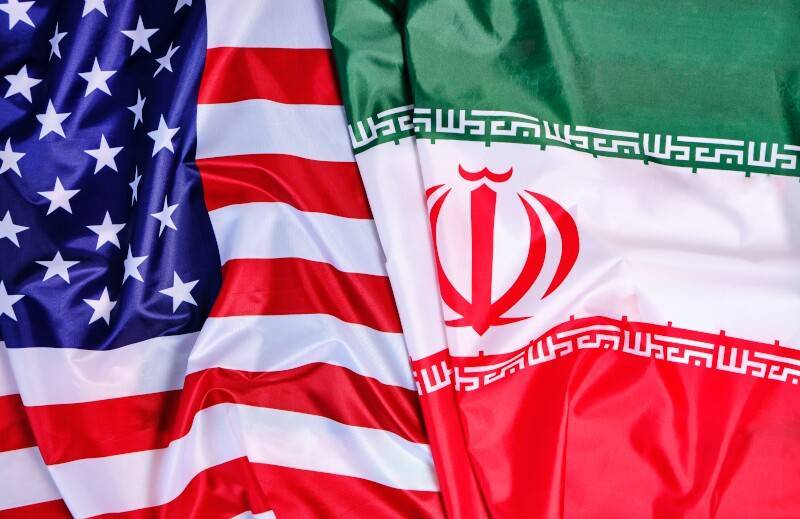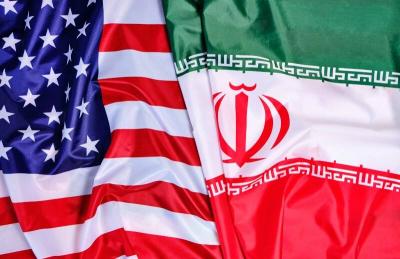Eight Iranian and informed sources revealed to Reuters that a carefully designed series of procedures will commence when six billion dollars of released Iranian funds are transferred to banks in Qatar, possibly next week. This will result in the exchange of up to five American dual nationals for an equal number of Iranian prisoners and their return to their respective countries. As a first step, Iran released four Americans from Evin Prison in Tehran and placed them under house arrest on August 10, joining a fifth American who was already under house arrest. Later that day, U.S. Secretary of State Antony Blinken described the move as "the first step in a process that could lead to their return home." The American administration indicated that among those released are businessmen Siamak Namazi (51) and Emad Sharqi (59), as well as environmental activist Morad Tahbaz (67), who also holds British nationality. The families of Tahbaz and Sharqi did not respond to requests for comment. The lawyer for Namazi's family also declined to comment. The identities of the fourth and fifth Americans have not been disclosed, with one reportedly being a woman. Reuters could not confirm the identities of the Iranian prisoners to be returned by the United States in the exchange.
Qatar mediated this agreement between the superpower that Iran refers to as "the Great Satan" and the Islamic Republic that Washington describes as a "state sponsor of terrorism." A source familiar with the discussions stated that Doha hosted at least eight rounds of talks involving Iranian and American negotiators who sat in separate hotels and communicated through shuttle diplomacy. The early sessions primarily focused on the difficult nuclear issue, while later meetings shifted their focus to prisoner release.
Three sources indicated that Doha would implement a financial arrangement to cover banking fees and monitor how Iran spends the released funds to ensure they are not used for items subject to American sanctions. The prisoners will first arrive in Qatar briefly before their exchange. A senior diplomat noted, "Iran initially wanted direct access to the funds but ultimately agreed to access them through Qatar. Iran will buy food and medicine, and Qatar will pay directly."
Reuters has gathered this narrative to detail previously unreported aspects of Qatar's mediation in the secret talks, how the agreement was reached, and the interests that drove both sides to conclude a prisoner exchange deal. Reuters interviewed four Iranian officials, two American sources, a senior Western diplomat, an advisor to a Gulf government, and a source familiar with the negotiations. All sources requested anonymity due to the sensitivity of the agreement, which has not been fully executed yet.
A U.S. State Department spokesman stated that the United States is not ready to announce the specific timing of the prisoners' release. The department also declined to discuss the details of what the spokesman described as "ongoing and highly sensitive negotiations."
**Building Trust**
The U.S. administration did not comment on the timing of the funds transfer. However, South Korean Foreign Minister Park Jin stated on September 5 that efforts are underway to transfer Iranian funds. The U.S. spokesman added, "The relationship between the United States and Iran is not one based on trust. We judge Iran by its actions, nothing else." The spokesman indicated that Washington has agreed to move Iranian funds from South Korea to restricted accounts at financial institutions in Qatar, but no funds will go directly to Iran.
The sources' account of the negotiations illustrates how the agreement sidestepped the main conflict between the U.S. and Iran regarding Tehran's nuclear goals, culminating in a rare moment of cooperation between the long-standing adversaries, who are clearly at odds on a range of issues from Iran's nuclear program to U.S. military presence in the Gulf.
U.S.-Iran relations reached a boiling point following former U.S. President Donald Trump's withdrawal from the nuclear deal with Iran in 2018. Since then, little attention has been paid to reaching another nuclear agreement, as President Joe Biden prepares for the 2024 presidential elections. The State Department spokesman also noted that there has been no change in Washington's overall approach to Iran, which continues to focus on deterrence, pressure, and diplomacy. He added that once the funds are transferred, they will be placed in restricted accounts in Qatar, over which the U.S. will supervise how and when these funds are utilized.
The potential transfer process has drawn criticism from Republicans, claiming that Biden, a Democrat, is effectively paying a ransom for the release of American citizens. However, Blinken told reporters on August 10 that the agreement does not mean Iran will receive any sanctions relief, clarifying that Washington will continue to robustly counter "Tehran's destabilizing activities in the region."
According to a source familiar with the discussions, Qatar-led mediation gained momentum in June 2023, with at least eight rounds of talks held since March 2022, dedicating early sessions primarily to the nuclear issue and subsequent sessions to prisoners. The source stated, "They all realized that nuclear negotiations were at a dead end and shifted their focus to prisoners. The prisoners' file is simpler. It's easier to reach an agreement on them, and you can build trust. That's when things became serious again."
**Prisoners Will Pass Through Qatar**
Iranian, diplomatic, and regional sources stated that once the funds reach Qatar from South Korea via Switzerland, Qatari officials will instruct Tehran and Washington to move forward with the prisoner exchange operations under the terms of a document signed by both sides and Qatar in late July or early August. A source familiar with the negotiations indicated that the process of transferring the funds to banks in Qatar is expected to be completed very soon, possibly next week if everything goes as planned. The source told Reuters, "The American prisoners will travel by air to Qatar from Tehran, and the Iranian prisoners will travel from the United States to Qatar and then be transferred to Iran."
According to two Iranian sources and the source familiar with the negotiations, as well as a senior Western diplomat, the most complex part of the talks was arranging a mechanism to ensure transparency in the fund transfer and adherence to U.S. sanctions. The six billion dollars of Iranian assets had been frozen under extensive U.S. oil and financial sanctions against Iran. Former President Trump reinstated sanctions on Iran in 2018 when the U.S. withdrew from the agreement that constrained Tehran's nuclear program.
Discussions included how to ensure that Iran spends the funds only on humanitarian goods and securing guarantees from Qatar regarding monitoring the process. An Iranian source familiar with the talks told Reuters, "To save the negotiations from collapse, Qatar pledged to cover the banking fees for transferring the funds from Seoul to Switzerland, and then to Qatari banks, while taking responsibility for monitoring expenditures."
A second Iranian source familiar with the negotiations and the source familiar with the talks indicated that the central bank governors of Iran and Qatar met in Doha on June 14 to discuss the funds transfer. An Iranian official and two sources familiar with the negotiations, along with the senior Western diplomat, stated that U.S. Special Envoy for Iran Robert Malley, who is currently on unpaid leave as his security clearance is under review, led the talks with Deputy Special Envoy Abram Paley and chief Iranian nuclear negotiator Ali Baqeri Kani. A senior Iranian diplomat revealed to Reuters that Iranian Deputy Foreign Minister for Economic Affairs Mahdi Safari participated in the Iranian delegation in two meetings in Qatar to discuss the funds transfer. Qatari State Minister for Foreign Affairs Mohammed Al-Khulaifi acted as the mediator.




